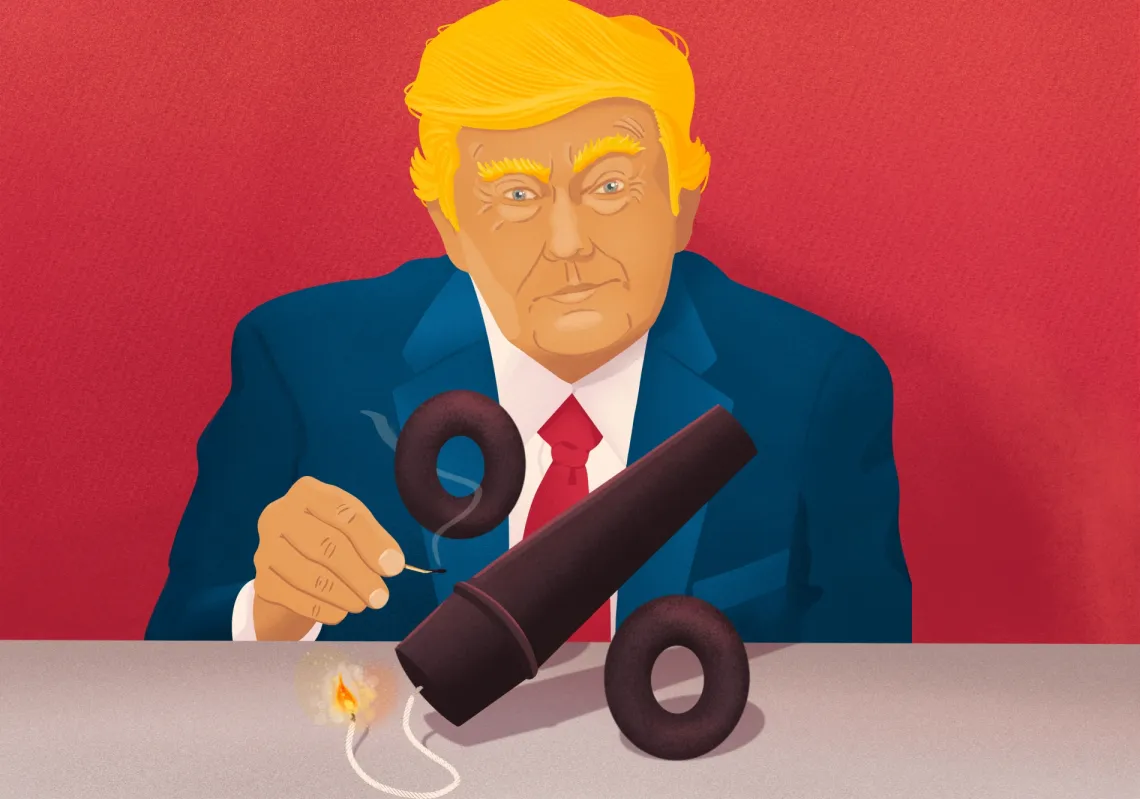After a busy weekend of talks in Geneva, an impatient reporter asked when the results would be announced. Li Chenggang, China’s trade representative, replied with a smile and an old saying: “Good food is never too late.”
The dish, when it at last arrived on 12 May, was surprisingly tasty. America has agreed to cut the “reciprocal” tariffs it imposed on China last month from 125% to a more digestible 10% for at least 90 days. China has agreed to do the same. It has also agreed to roll back other retaliatory measures, such as restrictions on sales of rare-earth minerals.
Earlier tariffs that each country has imposed will remain. They include an American levy of 20% that Donald Trump introduced to punish China for making the ingredients of fentanyl, a synthetic opioid. The result is a combination of tariffs that are far higher than Mr Trump inherited when he returned to office in January but much lower than seemed likely a few weeks ago, when Mr Trump was admonishing China for a “lack of respect” and China was digging in for a protracted trade war. Over the next 90 days, China will face a 10% reciprocal tariff like everyone else, even though it was the only country that dared to defy America.
Markets gobbled up the news. The dollar rose by about 1% against the euro. The S&P 500 index of big American firms jumped by 2.6% when it opened on 12 May. Stock markets in mainland China had closed before the agreement was revealed. But in Hong Kong, the Hang Seng index, which includes many mainland companies, rose by 1.7% in the final hour of trading.
Before the talks began, Scott Bessent, America’s treasury secretary, had said the two sides were seeking merely to agree on what to talk about. Over the weekend, Mr Trump posted on social media that a tariff of 80% on China “seems right!” When the negotiating teams were seen leaving the venue after only a few hours on Saturday, some feared the talks had broken down. In fact, the negotiators were just going for lunch. Good food isn’t always late.
What, then, explains China’s unexpected success? Jamieson Greer, America’s trade representative, gave some credit to the venue. The negotiations took place not in a “sterile” hotel, but in the intimate rooms and attractive grounds of an ambassador’s residence. According to Mr Greer, many of the most difficult issues were discussed on patio sofas under a beautiful tree.
Meanwhile, the state of trade between the two countries had become much less comfortable. Chinese exports to America fell by 21% in April, compared with a year earlier. The prices of Chinese goods listed on the websites of big American retailers have been rising slowly but relentlessly, according to data scraped by Alberto Cavallo of Harvard University and his co-authors.
In a press conference on 12 May, Mr Bessent conceded that tariffs on China had gotten out of hand. Mr Trump had announced a “reciprocal” tariff of 34% on China on April 2nd, or “Liberation Day”, as the president called it. That had quickly jumped to 84% and then 125% in response to Chinese retaliation. The result was the “equivalent of an embargo”, which neither country wanted, Mr Bessent said.
The Geneva agreement, he emphasised, includes a commitment by Chinese officials to ongoing talks. If that “mechanism” had already been in place, the “unfortunate escalations” that followed Mr Trump’s announcement on 2 April could have been avoided, he said. It was an extraordinary admission. If only America’s top economic officials had hit upon the ingenious idea of meeting their Chinese counterparts in person before Liberation Day, the world’s two biggest economies might have been spared a great deal of turmoil.
Financial chaos following Liberation Day, which included a bond-market revolt and a plunging dollar, helped Mr Bessent persuade Mr Trump to offer a 90-day reprieve to all of America’s trading partners on 9 April. After the Geneva talks, China has now been added to the list. Its reciprocal tariff of 10% is as low as any country enjoys. Moreover, China faces this low reciprocal tariff even though it, unlike America’s other trading partners, still has a 10% retaliatory tariff in place.
















